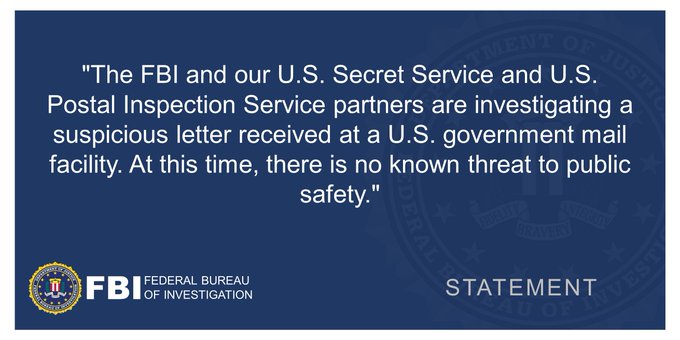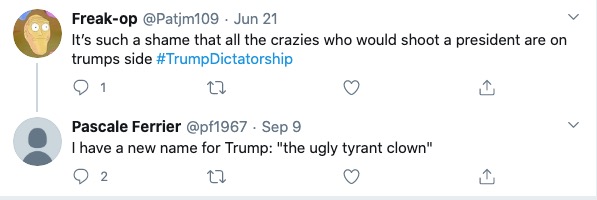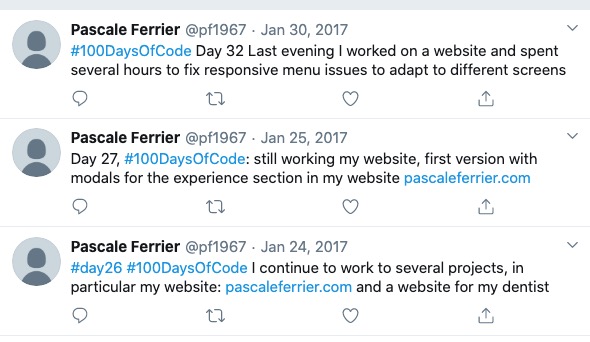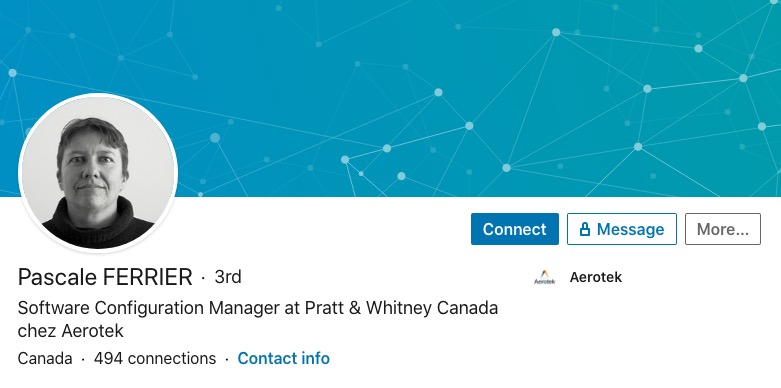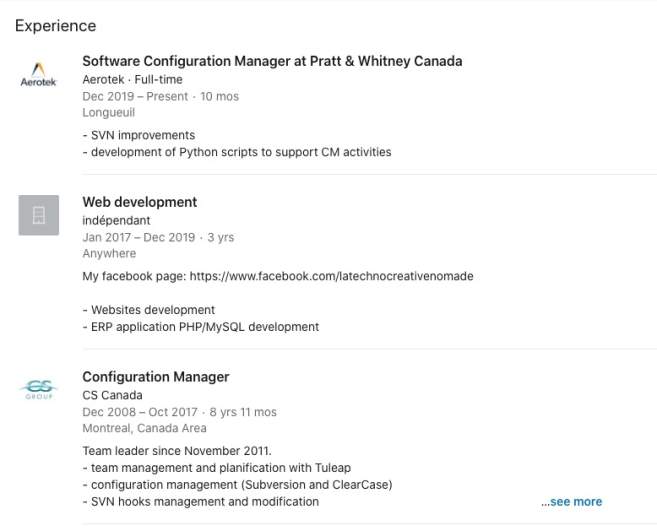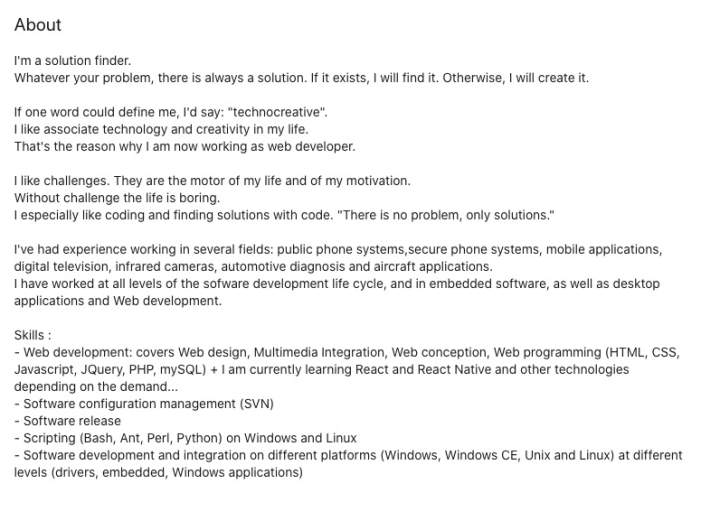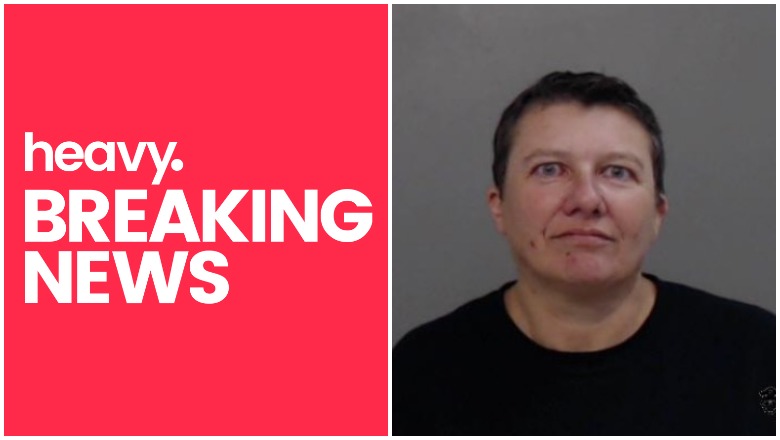
Pascale Ferrier is a 53-year-old Canadian woman who was arrested in connection with a letter containing ricin that was sent to President Donald Trump last week, CBC reported. She was a computer programmer and had previously been arrested in Mission, Texas, while living in the United States. Authorities said additional, connected letters might have been sent to law enforcement in Texas.
Ferrier was arrested when she tried to cross into the United States from Canada near Buffalo, New York, according to the CBC. She is being held in custody in New York, and court records show charges have not been filed against her yet. Federal authorities have not commented about her arrest and what she could be charged with. It was not immediately clear if Ferrier had hired an attorney who could comment on her behalf.
Here’s what you need to know:
1. Ferrier Was Carrying a Gun When She Was Arrested While Trying to Cross the Canadian Border Into New York at the Peace Bridge, Authorities Say
CBC confirmed on September 21 that the woman arrested was Ferrier.
The letter had been intercepted by law enforcement before reaching Trump, CNN reported, and tests confirmed that the package contained ricin. An unnamed source familiar with the investigation told CNN that the letter had a substance with physical characteristics similar to ground castor beans, and the letter was mailed from Saint-Hubert, Quebec. On Monday, CBC reported that Royal Canadian Mounted Police were searching a condo on Montreal’s South Shore in Saint-Hubert. The Journal de Montreal reported that she had only lived at the residence for a few months.
Ferrier was carrying a gun when she was arrested, CNN reported. She was trying to cross the border from Fort Erie, Ontario, into Buffalo, New York, via the Peace Bridge when Customs and Border Protection agents took her into custody, NBC News reported.
When news of her arrest was first announced on September 20, her name was not immediately released, but authorities said she would be charged by the U.S. attorney’s office in Washington, D.C. Her court appearance has been delayed until Tuesday, September 22, CBC reported.
Authorities said that similar packages were sent to Texas and might be connected, CNN reported. Mary-Liz Power, chief spokeswoman for Canada’s Minister of Public Safety Bill Blair, said that there were reports of multiple packages sent to “U.S. federal government sites” that were being investigated.
The New York Times reported that the connected ricin letters were sent to a detention facility and a sheriff’s office in Texas. Annie Bergeron-Oliver of CTV National News tweeted that one of the letters was sent to the Mission Police Department in Mission.
Officials said the investigation is ongoing.
2. She Was Deported to Canada for Overstaying Her Visa After Being Arrested in Mission, Texas, in 2019
Ferrier had been living in Texas when she was deported to Canada last year. She was arrested in Mission, Texas, in March 2019 for carrying an unlicensed weapon and a fake driver’s license and resisting arrest, The New York Times reported.
Her arrest record from 2019 shows that she was arrested by the Mission Police Department on March 12, 2019, and released on May 18, 2019. KRGV confirmed the arrest, noting that the Hidalgo County District Attorney’s Office had filed a motion to dismiss the charges because it was her first offense and she had spent 20 days in jail. She was jailed for more than two months before she was released.
Officials learned that she had overstayed a 6-month visa and her arrest had violated the terms of her passport. She was deported back to Canada, The New York Times reported.
The date of the deportation is not completely clear. A Facebook business page called La Techno-Creative Nomade, that is run by a Facebook profile with the name Pascale Ferrier, talks about being in Arkansas in June 2019, after having been in Texas.
On June 8, the Facebook page posted about being in Texas, writing: “I wanted to buy some typical things in Texas, such cowboy hat, boots or clothes, but I was very disappointed to see that almost all items have been produced abroad (China, Asia, Mexico…). And it’s often poor quality things with a high price… So finally I bought nothing because when I go somewhere I want to buy local ! If I’m in USA, I want to buy « made in USA ».”
The account noted on June 7, 2019, that she was leaving Texas to go to Quebec on June 9, 2019.
In July 2019, Ferrier posted on Facebook about looking for a job in Canada. The profile’s bio says that she lived in Saint-Hubert, Quebec, which is where authorities said the letters originated from.
A Pascale Ferrier Twitter account that threatened Trump also referred to itself as “Techno-creative Nomad” in its bio.
3. A Twitter Account With the Same Name Posted #KillTrump in September 2020
A Twitter account created in 2010 with the name Pascale Ferrier and located in Quebec tweeted a threat to Trump on September 9.
When someone tweeted, “Can someone please shoot Trump in the face yet?” the Pascale Ferrier account responded on September 9: “I just read this tweet. I agree… Nobody did anything… It’s time to change! #killtrump.”
The same account tweeted on September 9 calling Trump an “ugly tyrant clown.”
The account has not been confirmed by officials as belonging to the same Ferrier, but it has the same name and is also from Canada. The account has also tweeted about Women’s Day and about participating in 100 Days of Code.
The account’s bio reads: “Techno-creative Nomad,” which is similar to a Facebook page run by a freelancer named Pascale Ferrier called “La Techno-Creative Nomade.”
A LinkedIn page for Ferrier also referenced this business’s Facebook page.
4. A LinkedIn Bio Lists Ferrier as a Software Configuration Manager in Canada Who Also Ran an Independent Business Called ‘La Techno-Creative Nomade’
A LinkedIn bio for Ferrier lists her as working as a Software Configuration Manager at Pratt & Whitney Canada. According to their website, Pratt & Whitney Canada is an aircraft engine manufacturer headquartered in Quebec and is a division of the U.S.-based Pratt & Whitney. Pratt & Whitney is part of Raytheon Technologies Company.
The LinkedIn URL reads “pascaleferrier-technocreative,” which is similar to the“Techno-creative Nomad” listed in the bio of the Twitter account that threatened Trump in early September. It also matches the “La Techno-Creative Nomade” Facebook page run by an account with Ferrier’s name. The LinkedIn page also links to the same Facebook business page.
According to the LinkedIn bio, Ferrier has worked for Pratt & Whitney Canada since December 2019, was an independent web developer for almost three years before that and was a Configuration Manager for CS Canada from December 2008 to October 2017, along with working for Airbus for one year and Motorola from 2006-2007.
CTV reported that she was a computer programmer.
The LinkedIn bio includes a resume that describes her as a full-stack web developer who speaks both French and English. Her About page notes:
I’m a solution finder. Whatever your problem, there is always a solution. If it exists, I will find it. Otherwise, I will create it. If one word could define me, I’d say: ‘technocreative’. I like associate technology and creativity in my life. That’s the reason why I am now working as web developer.
I like challenges. They are the motor of my life and of my motivation. Without challenge the life is boring. I especially like coding and finding solutions with code. ‘There is no problem, only solutions.’
I’ve had experience working in several fields: public phone systems,secure phone systems, mobile applications, digital television, infrared cameras, automotive diagnosis and aircraft applications. I have worked at all levels of the sofware development life cycle, and in embedded software, as well as desktop applications and Web development.
Vice reported that several of her previous employers were defense contractors, including an aerospace company called Thales.
A Facebook page for the same Ferrier last posted publicly on June 15. It was a simple post just talking about making strawberry pie for dessert.
5. Ricin Has Been Sent to Presidents Before, Including Trump
In 2018, William Clyde Allen III was arrested in connection with ricin detected on mail sent to government officials in October 2018. Two envelopes were sent to the Pentagon, with top military officials as the intended targets, including then-Secretary of Defense James Mattis and Chief of Naval Operations Admiral John Richardson. Another suspicious envelope was sent to Trump and two to Ted Cruz’s campaign headquarters. A federal grand jury returned a seven-count indictment on October 18, 2018, charging Allen in connection with the threats.
In May 2013, anonymous ricin letters were sent to New York City Mayor Michael Bloomberg, Mark Glaze, who was then the director of Mayors Against Illegal Guns in Washington, D.C., and President Barack Obama. Shannon Richardson was charged with the crime and pleaded guilty, according to CNN. She was sentenced to 18 years in prison.
Richardson lived in New Boston, Texas, when the letters were sent. They had low concentrations of ricin and were discovered before there were any injuries or fatalities, CNN reported. The letters read: “You will have to kill me and my family before you get my guns. The right to bear arms is my constitutional God-given right. What’s in this letter is nothing compared to what I’ve got planned for you.”
Richardson had minor roles on shows like The Walking Dead and The Vampire Diaries. She originally blamed her “estranged” husband but didn’t pass a polygraph, CNN reported. Her computers had texts of the letters, and her husband was at work when the letters were printed, according to the outlet. She then claimed that she mailed the letters because her husband forced her to do so. Her husband denied her allegations.
Also in 2013, J. Everett Dutschke of Mississippi pleaded guilty to mailing ricin-laced letters to officials, including Obama, The New York Times reported. The letters were signed “K.C.,” and police investigated and briefly arrested an Elvis impersonator named Paul Kevin Curtis with whom Dutschke had an ongoing feud, according to The Times. But authorities later traced the letters to Dutschke.
Four men in Georgia were arrested in 2011 and charged with plotting to spread ricin in five cities. The plot targeted federal and state officials, The New York Times reported.
READ NEXT: The latest COVID-19 deaths, cases and updates
